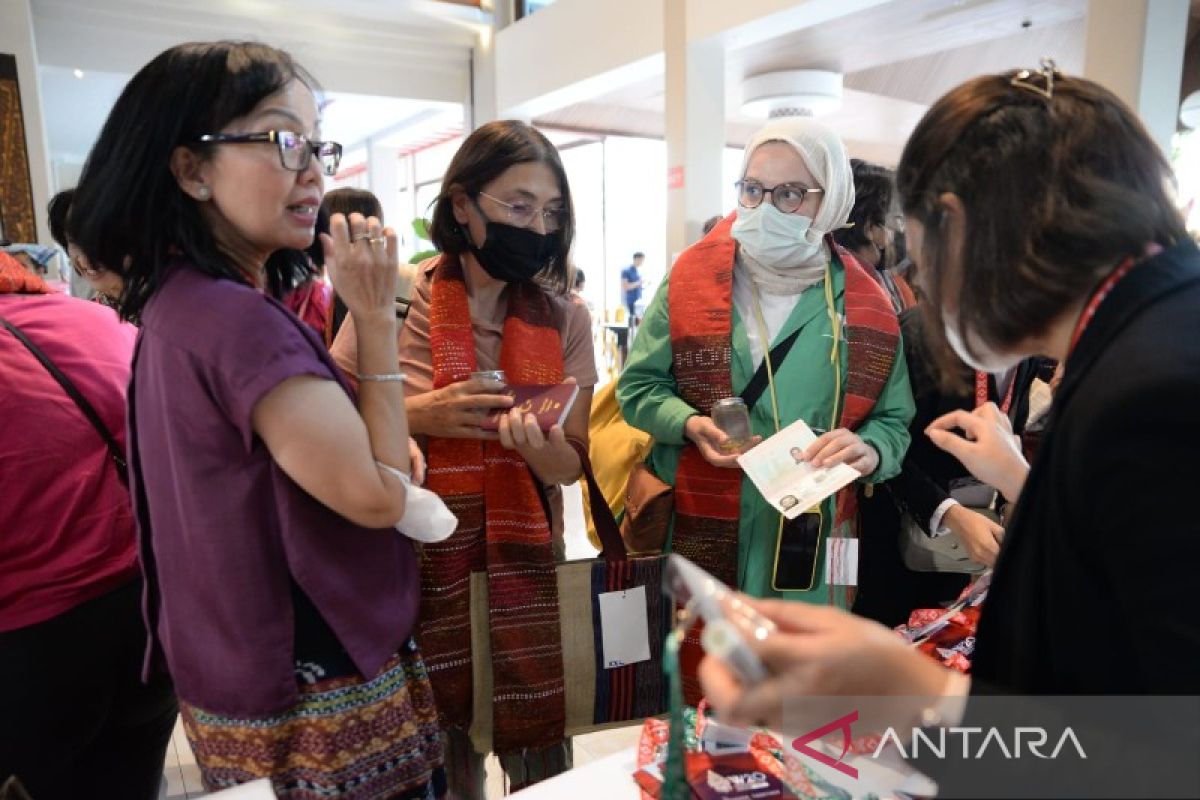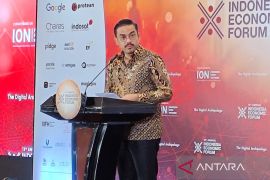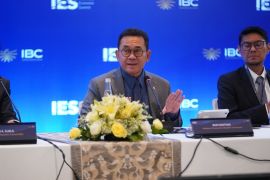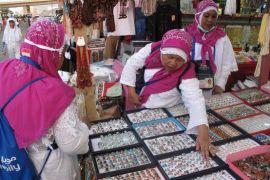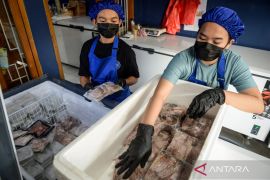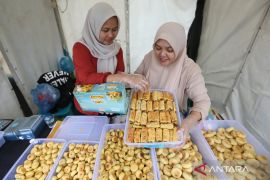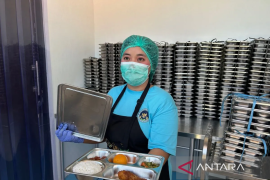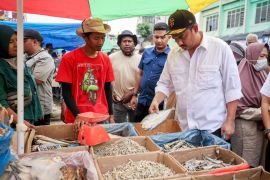I have traveled around Indonesia and MSME products are not inferior to industrial products, in fact, there are custom products. This is an advantage because the goods are rare, right? So the rarer, the betterJakarta (ANTARA) - The Indonesian G20 Presidency has presented opportunities on several fronts and shined a spotlight on the revival of the micro, small, and medium enterprises’ role in supporting post-pandemic economic recovery.
MSMEs play a vital role as pillars of the economy, especially in developing countries, and account for 50 percent of global jobs.
Formal MSMEs contribute about 40 percent to the gross domestic product (GDP) of developing countries, according to a World Bank report. This figure does not include the contribution of SMEs in the informal sector.
In developing countries, 7 out of 10 available job opportunities are created by MSMEs. Thus, the role of MSMEs in economic recovery cannot be underestimated.
According to data from the Cooperatives and Small and Medium Enterprises (SMEs) Ministry, there were around 65.47 million MSMEs in 2019. They accounted for 99.99 percent of the total businesses in Indonesia, contributing as much as 61.97 percent to the gross domestic product.
MSMEs also employed 97 percent of the total workforce and absorbed up to 60.4 percent of the total investment.
Related news: Supporting entry of Papua MSMEs in digital ecosystem: minister
Saviors of the national economy
Besides contributing to the Indonesian economy and pushing the nation toward developed status, MSMEs have historically been the saviors of the national economy, particularly during the monetary crisis in 1998.
"MSMEs in Indonesia are a form of national economic defense. Why do I say that? Because it has been proven that MSMEs were able to save the national economy during the 1998 crisis," Investment Minister Bahlil Lahadalia said.
At the time, Indonesia's inflation rate had bloated to 88 percent, which left companies bankrupt or unable to run their business. Only MSMEs were able to withstand the crisis and support the national economy. They were able to save the country from further spiraling into doom.
After the COVID-19 pandemic struck, they once again emerged as the backbone of the national economy, with several MSMEs rising first and helping support economic recovery.
If one looks back at the beginning of the COVID-19 pandemic, MSMEs managed to conduct digital transformation, shaping themselves into e-commerce. The pandemic has also shed light on innovations from MSME actors, such as in the frozen food category in the culinary sector and various health service products.
Given their important role, the government has encouraged synergy between large businesses and MSMEs so that they can support each other and help recover the economy. To meet that end, the government has stipulated a rule requiring large investors to attract local entrepreneurs and MSMEs.
Related news: President asks Papua MSMEs to use NIBs to bolster business capital
Joining the global value chain
Amid the ongoing crisis, the government has not just sat around and done nothing. It has put in efforts to help MSMEs flourish in their own homeland as well as encouraged them to go global and join the global value chain.
The OECD Working Party on SMEs Entrepreneurship study found that involvement in the global value chain would benefit MSMEs.
The Trade Ministry is also pursuing measures to help and expedite MSMEs’ market access, which range from establishing free-trade agreements with some countries or regions, supporting efforts to increase the capacity of MSME human resources through training and mentoring programs, to promoting Indonesian MSME products throughout the world.
"Indonesian MSMEs have great potential to become a part of the global value chain," Trade Minister Zulkifli Hasan said.
Unfortunately, they are still facing issues related to their development and joining the global value chain.
According to the Trade Ministry's records, the contribution of MSMEs to Indonesian exports in 2020 reached just 15.69 percent, which was smaller than the contribution of MSMEs in ASEAN countries, which stood at 20 percent on average.
Likewise, the participation ratio of Indonesia's MSMEs in the global value chain was still below 4.1 percent.
Data from the Asian Development Bank Institute showed that in 2020, there were several obstacles faced by Indonesian MSMEs in improving their business and getting involved in the global value chain, which included the domination of intermediate goods in exports, with neither finished products nor manufactured products having high added value.
Not only that, limited infrastructure and expensive logistics impeded MSME business growth. In addition, mastery of technology, compliance with standards, certification which had yet to be made common, as well as other external factors in terms of capital, market access, macroeconomic conditions, as well as the COVID-19 pandemic caused a further decline in participation.
Related news: Free certification a strategy to support halal products: BPJPH
G20 showcase
Therefore, the Indonesian G20 Presidency certainly could provide a platform for MSMEs to show off and promote themselves so that they can be recognized in the global market and eventually penetrate it.
The Cooperatives and SMEs Ministry has curated superior MSME products, such as culinary, wellness, and fashion products, and promoted them at many G20 side events.
"I have traveled around Indonesia and MSME products are not inferior to industrial products, in fact, there are custom products. This is an advantage because the goods are rare, right? So the rarer, the better," Cooperatives and SMEs Minister Teten Masduki remarked.
The promotions at a series of G20 activities are expected to encourage MSMEs' position as the main strength of the national economy.
Deputy for coordination of international economic cooperation at the Coordinating Ministry for Economic Affairs and B20 Sherpa, Rizal Affandi Lukman, said that the engagement group under the G20 Sherpa Track has also contributed to the development of MSMEs.
The measures taken by the B20 have included offering policy recommendations on the involvement of MSMEs in a digital-based economy as the key to resilience in testing times. B20 has also formulated policy recommendations related to digital literacy skills and digital tools, which are urgently needed by MSMEs.
B20 has also recommended that MSMEs be assisted in participating in the global trade chain, as well as presented several activities that can be used as a means for MSMEs to promote their business.
With such support from varied quarters, it is time for Indonesian MSMEs to lead economic recovery and enable everyone to rise together and rise stronger. The momentum of the G20 Presidency would be the beginning for everyone, not only big businesses, but also small and micro businesses, to move onwards together.
Related news: Papuan MSMEs' product quality at par with Javan counterparts: Minister
Related news: 19 mln MSMEs have gone digital: Minister Pandjaitan
Editor: Fardah Assegaf
Copyright © ANTARA 2022
